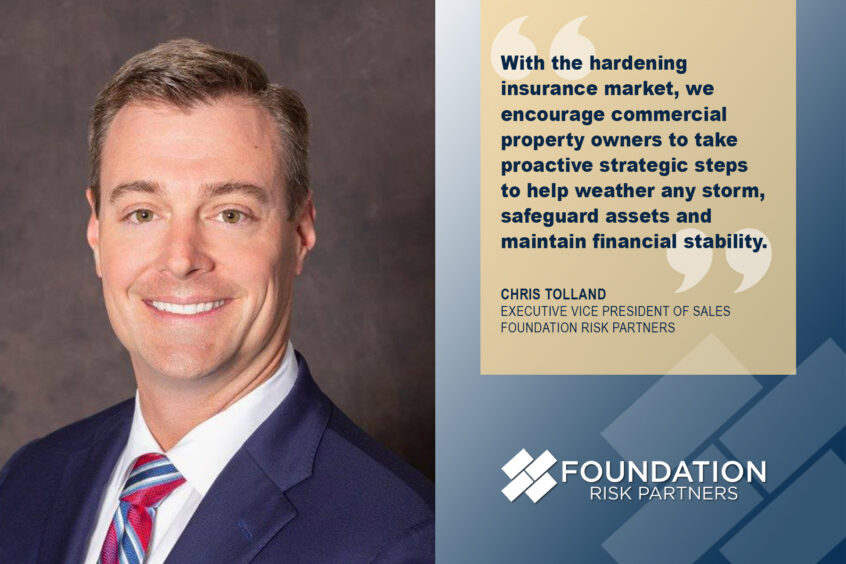FRP’s Executive Vice President, Chris Tolland, provides insight on how commercial property owners can navigate rising insurance costs.
While the 2023 hurricane season will end this week, rate spikes continue in catastrophic property insurance and reinsurance with some commercial property owners in Florida facing renewal increases of up to 125% due to an active year along the Gulf and Atlantic coasts.
Escalating risks and mounting losses due to catastrophic natural disasters have prompted insurers to increase premiums, limit coverage options and even withdraw from the market altogether. These changes, coupled with recent shifts in the regulatory environment, have thrust the onus of safeguarding policyholders onto the businesses themselves. Hard markets create difficulties for everyone, but especially for those least prepared. Luckily for Florida’s commercial property owners, there are ways of being proactive that can help.
How Commercial Property Owners Can Stay Prepared
In a hard market, preparation is key. Beyond monitoring industry trends and legislative shifts, property owners must proactively engage in strategic measures and use the right tools to minimize the impact of rising insurance expenses. Here’s how you can stay prepared.
1. Have a Full Understanding of Your Coverage
Understanding the details of your insurance program is step one. In this case, knowing what isn’t covered is as important as knowing what is covered. Make sure the terms and conditions meet all of your requirements and will protect you in the case of a catastrophic claim. Consulting a broker with the technical expertise to evaluate your program will help you navigate and understand the details of your coverage.
2. Conduct a Comprehensive Claims Analysis
It’s important to understand your business needs and risk tolerance before seeking or renegotiating coverage. Whether you require comprehensive coverage or just protection against catastrophic events, a thorough claims analysis and dialogue with your broker can uncover hidden vulnerabilities. By identifying claims trends and potential pitfalls, a proactive broker ensures your insurance strategy aligns with your business needs. This also enables you to consider your needs from a fresh perspective, facilitating creative solutions that optimize coverage and reduce costs.
3. Initiate Strategic Renewal Meetings and Regular Check-ins
To ensure effective insurance management, meet with your broker regularly to assess your risk factors, exposure and how the market’s evolution might affect your property coverage.
Ahead of your renewal, collaborate with your broker to evaluate program costs, discuss claims analysis and identify coverage gaps, pain points and potential pitfalls. Take the time during these meetings to work together to explore alternative solutions and craft risk strategies.
4. Consider Alternative Solutions
Shifting market dynamics call for creative insurance purchasing strategies. With comprehensive claims data in hand, you and your broker can explore alternative solutions to optimize costs and align with business goals.
Emerging products present fresh opportunities. Parametric insurance, for example, triggers coverage not solely based on physical damage, but on specific event occurrences. This type of insurance is particularly useful for covering risks that may not result in direct physical damage but still lead to financial losses, such as business interruptions due to adverse weather conditions. It can serve as a valuable supplement to traditional property insurance coverage or act as a tool to address specific risks that are challenging to cover through traditional methods.
In a hard market, you might also consider adjusting terms and conditions to strike a balance between cost and coverage. Using a flexible, analytical approach, you can devise a solution that manages costs and meets your unique business needs.
Remain Proactive
When exploring alternative solutions, remember what suits one business might not suit another. Analyze each alternative and make sure to weigh options outside of your existing program structure before making a purchase. A broker with a wide network of marketplace relationships can provide multiple options for you to consider so you can get the best result.
To learn more, click here.

